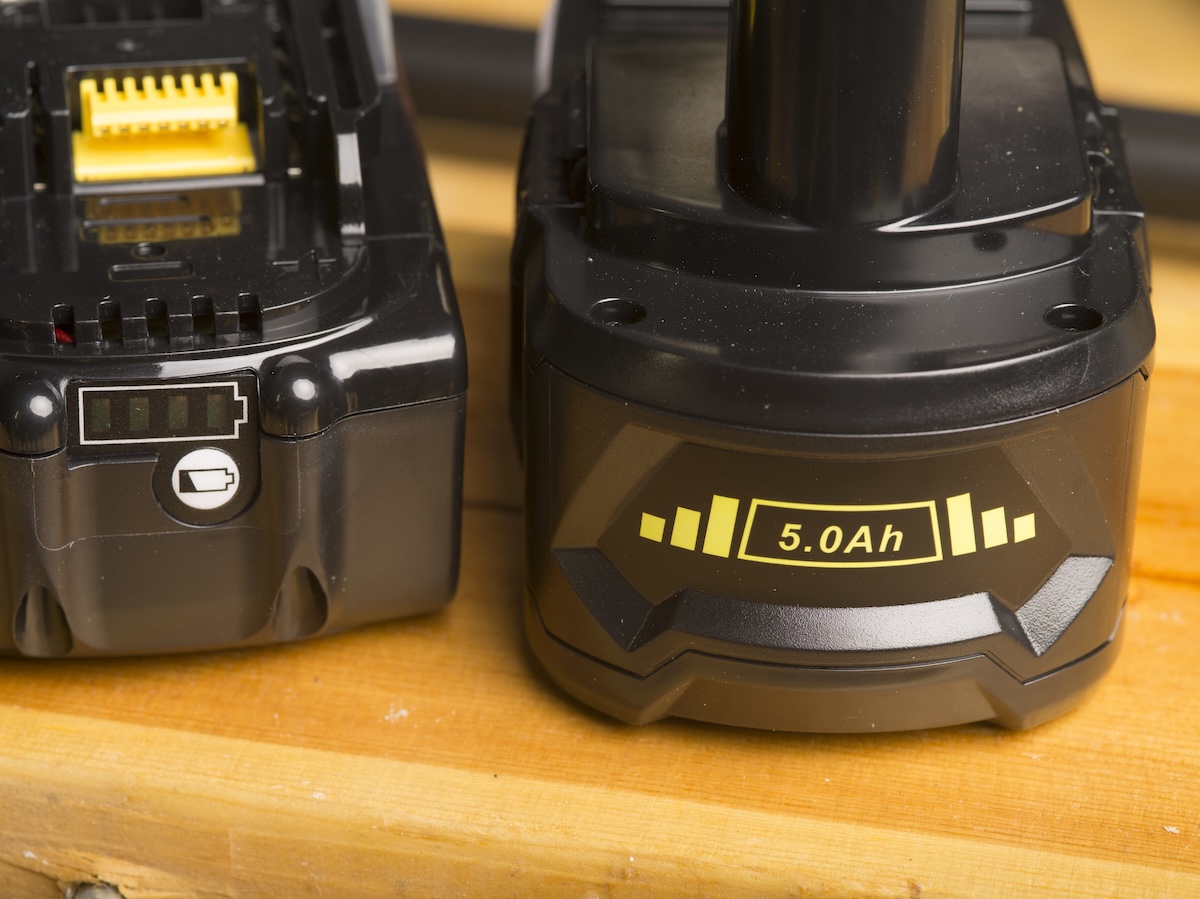We may earn revenue from the products available on this page and participate in affiliate programs. Learn More ›
If you love to pursue DIY projects around your house, then you probably have a collection of power tools to help you get the job done, such as a cordless drill, circular saw, jigsaw, impact driver, and random orbital sander. These convenient and versatile tools save time, reduce physical strain, and often produce more professional results than their manual counterparts for simple to complex home projects.
Most power tools are now cordless, which means they depend on rechargeable lithium-ion batteries to function effectively. Understanding how to properly store and maintain the batteries is critical to ensuring they stay safe and effective so you don’t end up wasting money or unnecessarily contributing to environmental pollution by prematurely discarding the batteries.
We spoke with an expert at DeWalt to uncover the secrets to the best power tool battery storage at home.
Cold temperatures affect the lifespan of batteries.
Extreme cold (below freezing) can negatively affect power tool batteries’ performance and longevity, says Sara Godding, vice president of product management at DeWalt. “The cold air reduces the battery’s capacity and efficiency, leading to shorter run times and potentially causing the battery to not charge properly.”
It’s important to avoid exposing batteries to temperatures below 32 degrees Fahrenheit or above 105 degrees Fahrenheit for extended periods of time. For best results, store power tool batteries in a temperature range of about 50 to 85 degrees Fahrenheit.

Yes, it’s possible to store batteries in a cold garage.
If you live in an area that experiences frigid temperatures during fall and winter, you may be wondering if it’s safe to keep your power tool batteries out in the cold garage. According to Godding, storing power tool batteries in a cold garage is possible, but it is not ideal if the temperatures drop below freezing. “If you must store the batteries in a garage, consider using an insulated storage box or cabinet to help moderate the temperature.” Bring the batteries indoors during particularly cold spells to adequately protect their performance and longevity.
Consider these tips when storing power tool batteries at home.
The garage isn’t the only place where you can store power tool batteries. Store them in a cool, dry spot away from direct sunlight and sources of excess heat or cold, says Godding. “A climate-controlled environment, such as a basement or a utility room, is ideal,” she says. “But remember to avoid locations where the temperature may exceed 104 degrees Fahrenheit, such as outside sheds or metal buildings in the summer.”
“The cold air reduces the battery’s capacity and efficiency, leading to shorter run times and potentially causing the battery to not charge properly.”
Sara Godding, vice president of product management at DeWalt

It’s not only cold air that can harm batteries.
While cold weather is a major concern when it comes to storing power tool batteries, it’s important to consider hot temperatures and moisture as well. Exposing batteries to heat upward of 80 degrees Fahrenheit will degrade them, and letting them sit in temperatures above 100 to 120 degrees Fahrenheit can cause severe damage quite quickly. “Never expose battery packs to fire or excessive temperatures above 150 degrees Fahrenheit,” warns Godding. Also, do not store fully charged batteries in high temperatures because they could end up exploding.
Moisture can also be a problem. If batteries get wet, the electronic circuitry inside can degrade, reducing their lifespan. Protect power tool batteries from rain, snow, puddles, mud, and other moisture by keeping them in a special storage case.
Keep these tips in mind to properly maintain power tool batteries.
In addition to adhering to storage guidelines based on temperature, it’s beneficial to consider the following tips for maintaining power tool batteries to ensure their longevity and safety.
- Don’t charge battery packs with non-compatible chargers, as this can cause the battery pack to rupture and lead to serious injury.
- Never use the wrong battery in a tool; they are not interchangeable.
- Don’t try to open the battery pack yourself.
- If the battery pack is damaged, don’t use it. Instead, return it to a service center for recycling.
- Clean the exterior of the battery with a cloth or soft non-metallic brush, and do not use water or cleaning solutions.
- Keep the air temperature between 65 degrees Fahrenheit and 75 degrees Fahrenheit when charging a battery, and avoid charging in conditions below 40 degrees Fahrenheit or above 104 degrees Fahrenheit.
- For long-term storage, make sure the battery is charged to about 50 percent, not fully charged.
- Do not leave batteries on the charger, as that can cause overcharging and ruin their lifespan.
- Avoid running the battery completely down before charging it.
- When transporting battery packs, ensure the terminals are kept away from materials that could cause a short circuit like metal nails, screws, or keys.


